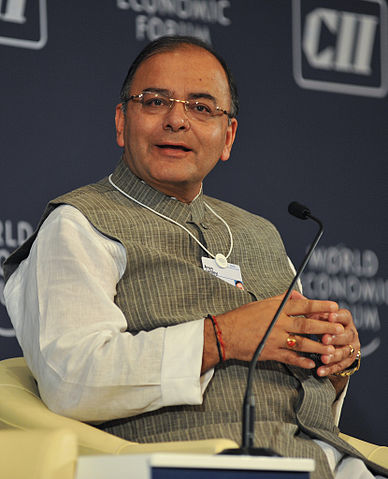
India’s finance minister acknowledged Friday that the government could miss its deadline to implement a key tax law amid criticism of the pace of economic reforms after a year in office.
Arun Jaitley said he was “conscious” that delays in parliament in passing long-awaited legislation on a national sales tax meant the government was “cutting (it) too fine to reach the deadline” for its rollout next year.
“(But) the government is going to make every effort to ensure that there is no delay and we meet the deadline,” the minister told reporters while marking a year in government.
He meanwhile trumpeted a string of his government’s achievements in the last 12 months, including shrinking inflation and the fiscal and public deficits, combating corruption and speeding up decision-making which have long held back economic growth.
The government set a deadline of April 1, 2016, for introducing the key goods and services tax (GST), which will replace overlapping state and federal levies and create a common market to boost the economy.
But the opposition, which has a majority in the upper house, forced the government this month to send the GST bill to a parliamentary panel for further scrutiny along with legislation on making it easier for businesses to buy land, another crucial initiative.
In a special India edition published Friday, The Economist criticised a lack of big-bang reform by the government in its first 12 months, including easing strict labour laws, overhauling inefficient state-owned giant Coal India and introducing a more predictable and lower tax regime.
“Mr Modi’s government is missing a rare chance to launch some bold reforms,” the magazine said to mark the first anniversary.
Jaitley defended the pace and level of reform since his party won a landslide at elections last May, saying his government had revived Asia’s third largest economy with growth heading towards eight percent.
But he also said the government should work to tax companies at more competitive rates, amid a blazing row with foreign portfolio investors over demands they pay another tax for which they were not previously liable.
“We must … remove discretion, phase out exemptions and bring the effective rate down to global levels,” Jaitley told the press conference.
One of the main gripes by foreign businesses under the previous Congress government was that the tax regime was both aggressive and arbitrary, a deterrent to foreign investment in India.



